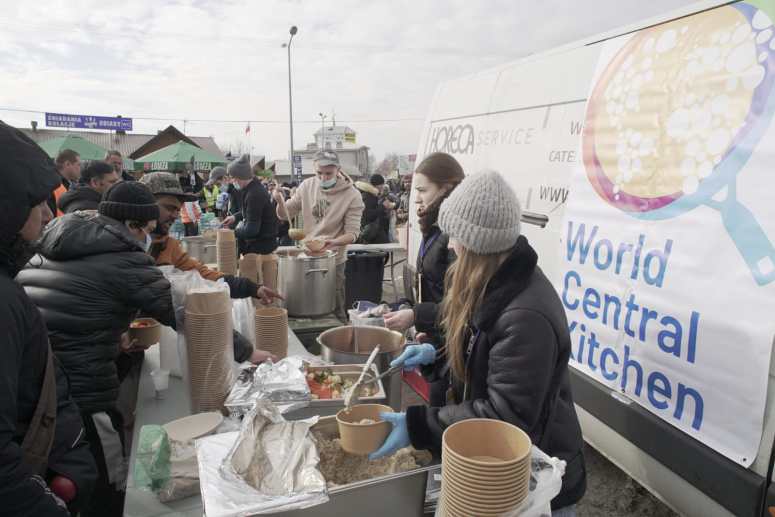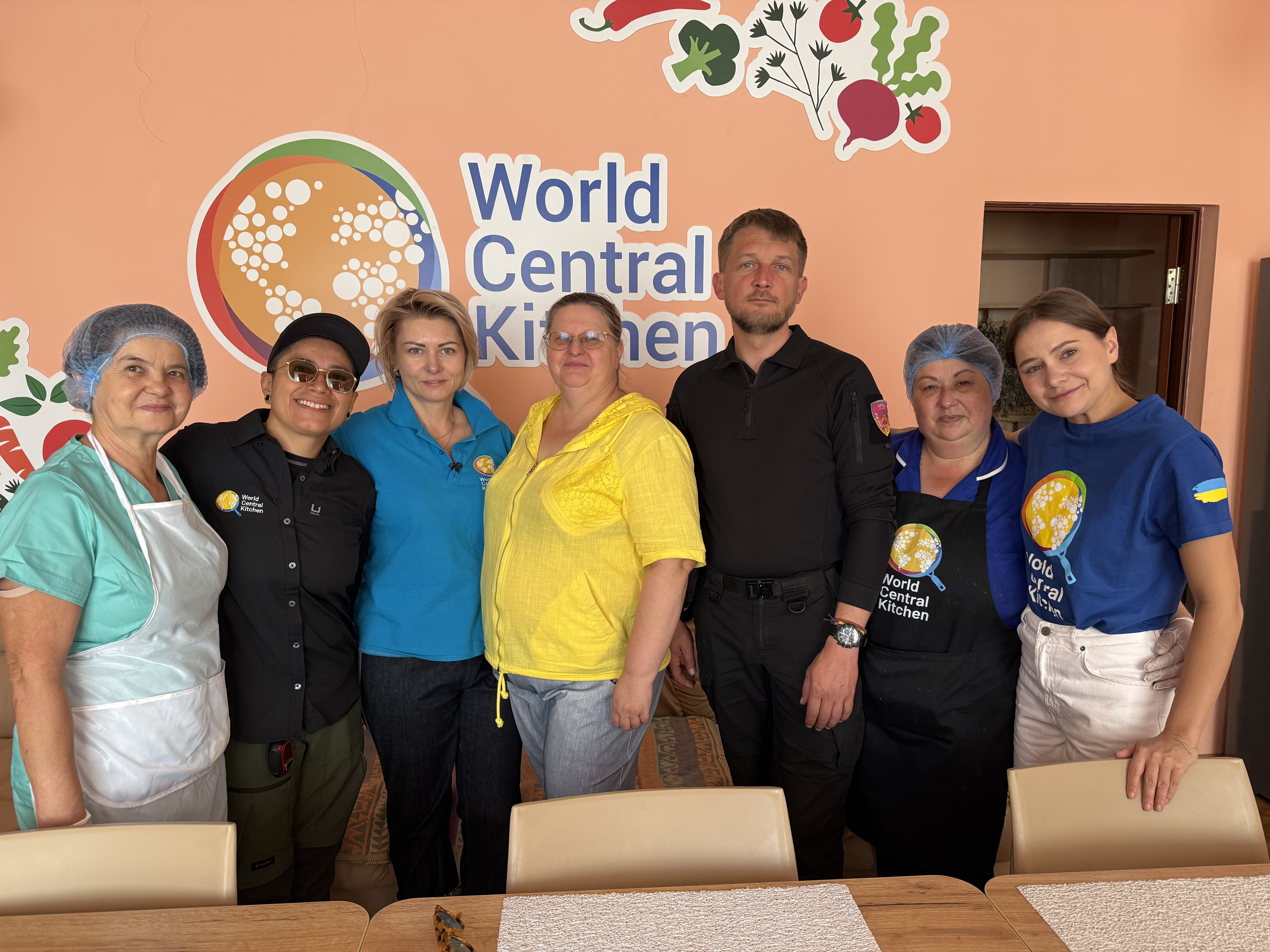How WCK Supports Life on the Frontlines in Ukraine

Donetsk region is one of the hardest places to live in Ukraine. Almost every community there feels the impact of daily shelling. Families who remain live with daily risks, yet they keep their homes, look after one another, and find ways to endure. For them, food can bring comfort, strength, and a small sense of normal life.
This is where World Central Kitchen continues our work. Since the first months of the full-scale invasion, WCK teams have prepared hot meals and delivered food kits throughout the region. Often, we are among the very few organizations present in frontline towns.
“In the Donetsk region, routes change constantly,” says Serhii, a regional lead with WCK. “When others have to leave, WCK stays.”
Serhii has been part of food support in the region for more than a decade. Back in 2014, he helped provide meals to thousands of displaced people every day. That experience shaped him, and when the invasion escalated again in 2022, he was ready to act. He remembers when the first WCK wagon arrived in May: a small group of helpers quickly grew into more than a hundred people moving food across the city.
One of his strongest memories is from Siversk. “We arrived in a small bus with food kits. People didn’t know how to react—they were surprised it was free, surprised it was for them. At one point, people literally lifted us up onto the bus, trying to take the aid along with us.”

When others have to leave, WCK stays.
Serhii
Regional Lead, WCK Ukraine
Since 2022, WCK has served over 37 million meals in Donetsk region alone. Each one, Serhii says, is more than just food. “A bowl of soup can warm someone after strikes. A hot lunch can give the strength to evacuate. A shared dinner can bring back a sense of normal life.”
Food kits, too, have become an anchor for many families. They bring a sense of stability in places where markets are empty or supply chains are broken. In some communities, seed kits are turned into jars of preserved cucumbers and tomatoes, grown and prepared by families themselves.
And then there are the chickens. The idea for the project came during a WCK team gathering, when the team asked themselves: what more can we do beyond hot meals and kits? Chickens turned out to be the answer. “When you deliver food kits, people are grateful,” Serhii reflects. “But when you bring a living creature, it’s different. Families suddenly have something to care for, something that brings daily benefit. People see it as hope for life.” The hens not only put fresh eggs on the table but also gave people a small sense of renewal—something alive and productive in the middle of destruction.
Deliveries, whether of meals, kits, or chickens, are never simple. “Sometimes it’s scary,” Serhii admits. “But then you see people’s relief, their smiles, their gratitude. That lifts us. It’s not just aid. It’s connection.”
What inspires him most are the people themselves. Even just a few kilometers from the frontline, families talk about the future. “They tell us: tomorrow the war will end, tomorrow it will be quiet again. You drive home replaying it in your head, and you start to believe it too.”
“We’re not just delivering meals,” Serhii says. “We’re delivering hope.”
Support our work in Ukraine






